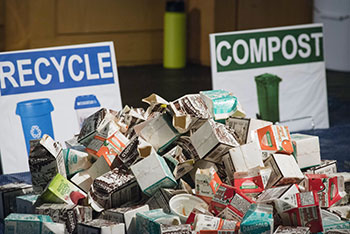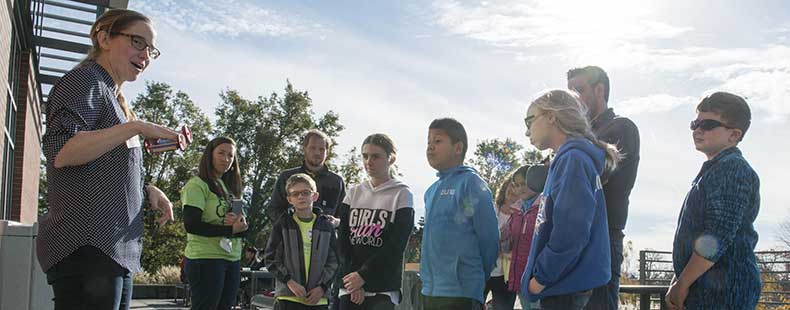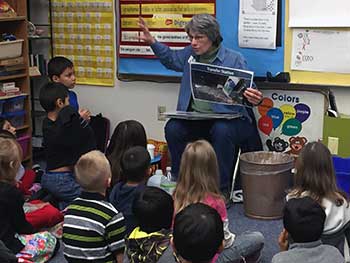How can we work to be more environmentally conscious at my school?
 There are so many ways to make a difference in your school, from a hand washing campaign to composting all of your school’s food scraps! Get ideas on what project might be right for you start off with in your school. A good way to figure out how to proceed is to do an audit of your waste, energy or water. This can give you an idea of what you can improve on and decide what first steps to take. You can use that project to certify in the EarthGen statewide program and be recognized for your efforts!
There are so many ways to make a difference in your school, from a hand washing campaign to composting all of your school’s food scraps! Get ideas on what project might be right for you start off with in your school. A good way to figure out how to proceed is to do an audit of your waste, energy or water. This can give you an idea of what you can improve on and decide what first steps to take. You can use that project to certify in the EarthGen statewide program and be recognized for your efforts!
Where should we start?
The best way to be successful in your green school endeavors is to have support from your custodians, administration, lunchroom staff and students! Start conversations and see how you can all work together to implement programs and identify a Green Team Leader. Identify interested students, start a Green Team, and decide on a project!
Why should we certify as an EarthGen school?
EarthGen (formerly Washington Green Schools) recognizes schools across the state as being environmental leaders in their communities. They provide support to school’s projects and provide education on how to best implement them and empower students. As a certified EarthGen school you set an example for your community and other schools to raise the bar on what it means to be sustainable! It’s great to be recognized for all your hard work!
Our school doesn’t compost food waste. How can we get started?
The best way to get started with composting food waste is to do a waste audit. This will let you know how much of your food is currently being thrown away, and how big of a problem it is. Then, after coordinating with your school, we can bring in a sort table (free of charge!) and provide education to your students as to how to use it. Student monitors during lunch are a great way to get students involved and keep the food waste bin contamination free!
How do I find others to get involved with me in increasing sustainability?
Many schools in Clark County have Green Teams and have done lots of projects that could inspire you! We offer many ways to connect schools in order to connect and share ideas.
- Our Clark County Green Schools Summit is a great place for students and green team leaders to connect with others and get ideas.
- Our School Stories are a great way to hear about what other schools are doing and get inspired. We invite you to share your story so others can be inspired by the great work you are doing! Have a great school story to share? Let us know.

What tools does Clark County Green Schools have to help my school?
 Clark County Green Schools is here to offer you support, education and connect you to resources. We can help coordinate a waste audit, implement a composting program, offer tours of the transfer station, bring a storyteller in, and provide recycling bins (free of charge!). Although we primarily have resources related to waste reduction, we provide support in all of the certification categories and can connect you with people who specialize in a particular field.
Clark County Green Schools is here to offer you support, education and connect you to resources. We can help coordinate a waste audit, implement a composting program, offer tours of the transfer station, bring a storyteller in, and provide recycling bins (free of charge!). Although we primarily have resources related to waste reduction, we provide support in all of the certification categories and can connect you with people who specialize in a particular field.
What is a waste audit? Why should we do one?
In a waste audit, we will have your school collect one day of garbage and recycling either from your whole school or the cafeteria. With your Green Team, we will weigh and measure all of these materials and then sort through them to see what could have been recycled or composted. This allows your school to see where improvements can be made and can provide data to back up the need to implement a sort table or to start a recycling campaign.


